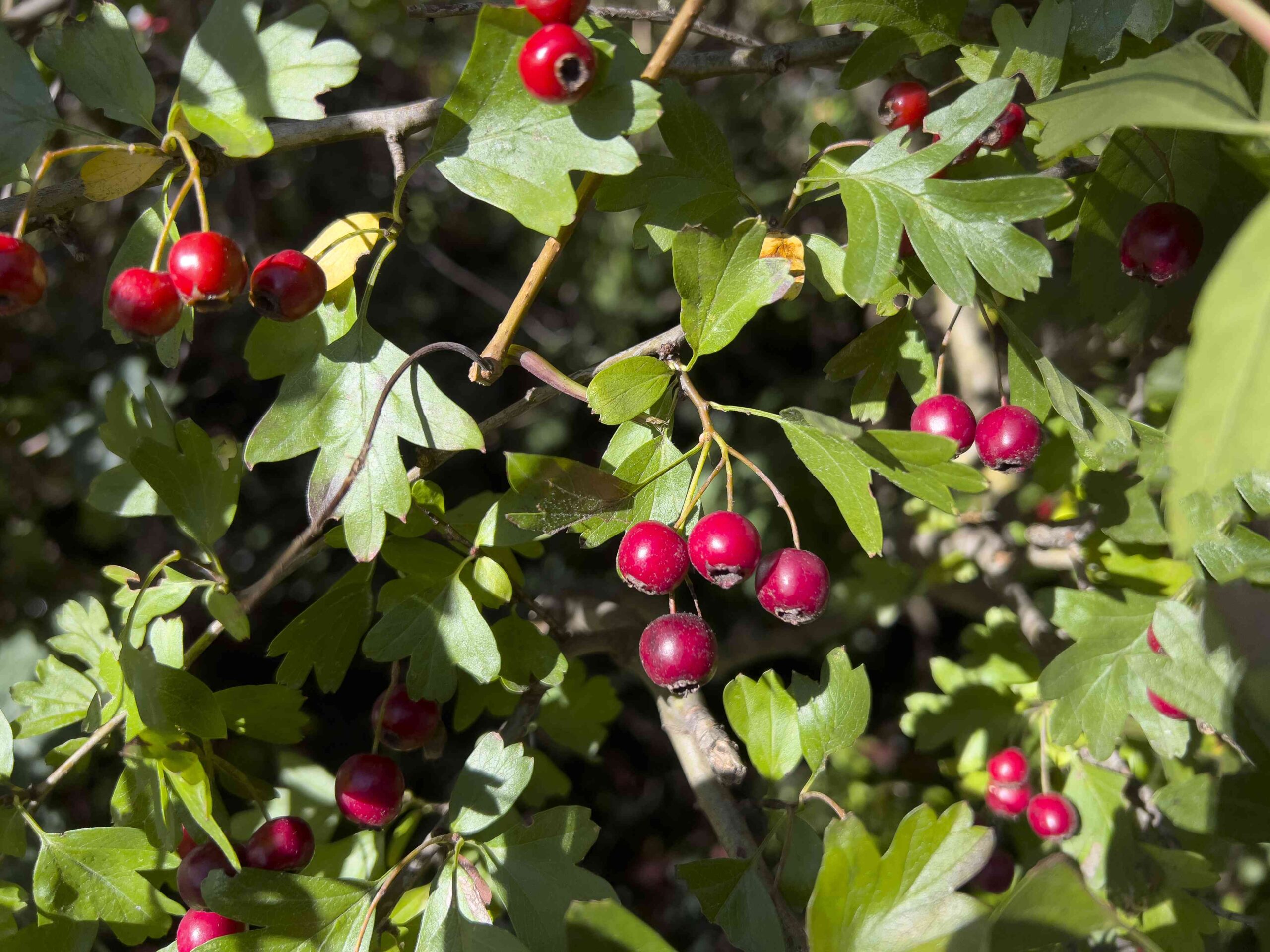
:max_bytes(150000):strip_icc():format(jpeg)/Health-GettyImages-1893000416-a676caa728a94ae2a53b34d97d61c863.jpg)
Hawthorn (Crataegus) is a flowering plant of the rose family. You can consume the edible fruit from the plant as a supplement or tea. Hawthorn is rich in fiber, vitamins, minerals, and antioxidants. It can help treat heart conditions and blood disorders.
Some of the most common hawthorn species include C. monogyna, C. nigra, C. pinnatifida, and C. laevigata. While widely distributed in various parts of the world, you’ll most commonly find this plant in temperate regions of the Northern Hemisphere, especially in Europe and China.
Heart failure occurs when the heart cannot consistently pump blood. One study found that administering 900 milligrams of hawthorn extract daily reduced the risk of sudden cardiac death. There is no confirmed evidence that hawthorn treats heart failure directly.
Hawthorn may help prevent hypertension. A study examined how 1,200 milligrams of hawthorn extract daily could help people with type 2 diabetes who have high blood pressure. Participants who took hawthorn extract saw a significant drop in diastolic blood pressure compared to those given a placebo. Other studies have not found evidence that hawthorn has a blood pressure-lowering effect.
Some animal studies suggest that hawthorn may effectively regulate lipid metabolism and reduce low-density lipoprotein (LDL) cholesterol levels, known as “bad cholesterol.” Lipid metabolism is how your body stores and breaks down fat and energy. An imbalance of your lipid metabolism can lead to cell damage in your brain, liver, and nervous system.
Animal studies do not accurately reflect how hawthorn may affect cholesterol levels and lipid metabolism in humans.
Hawthorn contains flavonoids and phenolic compounds. These substances may help treat diabetes, which causes high blood sugar levels.
Some studies show that the flavonoid quercetin may have blood sugar-lowering effects. Quertecin promotes glucose metabolism, a process that creates energy for your body. It can also help with insulin secretion (a bodily process that prevents the overproduction of glucose). Most research has been conducted on animals, so research with human participants is needed.
Animal studies have found antioxidant activity in hawthorn. The flavonoids in hawthorn may help decrease oxidative stress, which affects the body by damaging cells and increasing inflammation.
Holistic medicine has explored the potential health benefits of hawthorn.
It can help reduce inflammation that could lead to several health conditions and may help treat Alzheimer’s disease, depression, and ischemia (insufficient blood flow). Hawthorn may also protect against atherosclerosis (plaque buildup in your arteries) and indigestion and prevent skin aging. More research is needed to confirm these findings.
You can consume hawthorn as a fresh fruit or as an herb. Different parts of the hawthorn plant, including the leaves and flowers, are rich in nutrients and biologically active ingredients like organic and phenolic acids, polyphenols, and triterpenoids.
Hawthorn has been added to various foods, including:
- Beverages
- Jams
- Sugar or candy products
- Meat products, such as traditional sausages
- Brewing products (beers and wines)
- Bakery products
People have sometimes applied hawthorn topically to treat skin issues like sores, boils, and itching.
Dosage
How much hawthorn is safe to consume depends on how it is consumed. Older studies suggest taking a daily dose of 160-900 mg of hawthorn extract, but there is insufficient recent research on hawthorn to confirm the correct dosage. Consult your healthcare provider before adding hawthorn to your diet.
There have not been many tests on the consumption of hawthorn, but most people do not seem to experience any side effects. Consult your healthcare provider before consuming hawthorn, especially if you are nursing or pregnant.
Potential Drug Interactions
While hawthorn is a natural plant, it may interact with certain medications, especially when taken for treatment or in large amounts.
Hawthorn may potentially interact with:
- Vasodilating (blood vessel-opening) medications
- Heart failure medications
- Blood pressure medications
- Medicines for treating angina (chest pain) and arrhythmias (irregular heartbeat)
Consult your healthcare provider before consuming hawthorn if you are on medication. They can help you determine whether or not hawthorn supplements or tea may interact with medications.
How to Purchase Hawthorn
Most countries do not restrict the sale or use of hawthorn plants, and it is common to see hawthorn plants in the United States. Hawthorns are known for the round, red berries they produce in the fall. They can be grown in a garden or purchased at a local grocery store.
You can safely consume up to 1,800 milligrams of hawthorn per day. The exact dosage depends on the brand of the supplement or type of tea you are consuming. Consult your healthcare provider before starting a new supplement.
Although rare, you can experience side effects from ingesting hawthorn. Side effects typically reported with hawthorn are mild to moderate, such as:
- Nausea
- Dizziness
- Vertigo
- Headache
- Sweating
- Digestive discomfort
If you are allergic to plants like hawthorn in the Rosaceae family, it’s best to avoid consuming hawthorn herbs or supplements.
Hawthorn is a small, thorny tree that produces berry-like fruits. It has been added to different foods and is consumed as a supplement or in tea. It may help alleviate symptoms of certain heart conditions, diabetes, and inflammation. More research is needed to know how hawthorn affects human beings.
Consult your healthcare provider before adding hawthorn to your diet. Make sure your healthcare provider has an updated list of your prescriptions, over-the-counter medications, and supplements.







